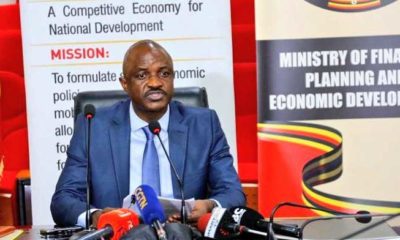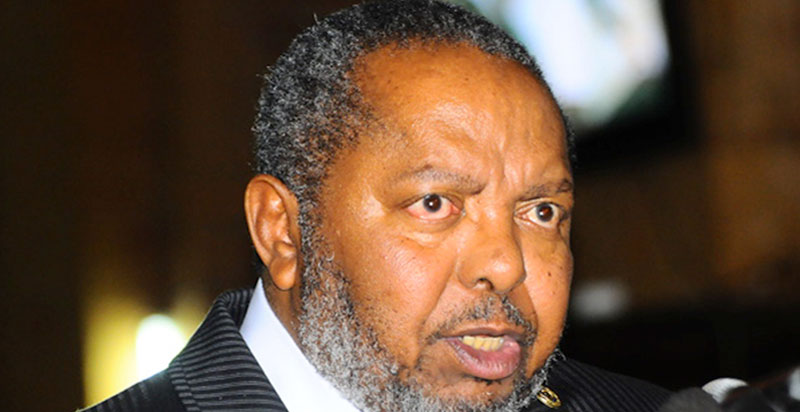Columnists
Mission 2020: Wishful but not truthful
The obsession for long term planning has brought down the curtain on Uganda’s 25 year economic party!
a proponent of long-term-plans
Uganda has a long ‘wish list’ for the year 2020. The country wishes to become a lower middle income economy in 2020. It wishes to export 20 million bags of Coffee (60kg each) in 2020.
It wishes to become an oil exporting country in 2020, among other wishes. In some quarters 2020 has been baptized “Uganda’s magical year.”
Unfortunately, there seems to be no ‘action plan’ to achieve these ambitious goals. Granted, there is a generic plan (the National Development Plan [NDP], now in its second edition in a series of six five-year Plans, aimed at achieving the Uganda Vision 2040) outlining the ‘wishes’ in some good detail.
But this is not the action plan required to define the specific activities that must be performed for the above mentioned goals to be realised.
There is nothing to show the specific tasks to be done and by who. There are no time horizons when those tasks will be done. Most importantly there is no discrete resource allocations, in the form of specific funds and availability for the specific activities.
One, therefore, may reasonably say that all Uganda has set to achieve by 2020 are wishful but not truthful goals. This is no surprise, at least, to those who are familiar with the utopianism associated with long term planning.
In a book, “Uganda’s Economic Reforms: Insider Accounts” (published in 2010), Bank of Uganda Governor Emmanuel Tumusiime-Mutebile warned that Uganda was making a big mistake of returning to long term planning.
“An intriguing phenomenon in Uganda is the continuing yearning of its politicians for long term planning, despite the fact that the country has experienced twenty years of rapid economic growth without such plans,” Mutebile wrote.
PEAP performed better than NDP
At the time Mutebile wrote this, his colleagues at Ministry of Finance, Planning and Economic Development (MoFPED) and at the National Planning Authority (NPA) were launching the first five-year NDP. Its expiry date (2015) arrived unnoticed.
Its theme was “Growth, Employment and Socio-Economic Transformation for Prosperity.” On the contrary, the period 2010 – 2015 when Uganda’s development agenda was guided by the NDP I, delivered one of the lowest growth rate averages (4.5%) and the highest unemployment rates the country has seen under the NRM government. Nothing much was done to achieve its priorities, among them climate change!
Mr. President, before re-launching long term planning, your government, in 2008, hired the Oxford Policy Management (OPM), a UK firm, to evaluate how you had performed under the Poverty Eradication Action Plan (PEAP) so as “…to determine the most effective strategy for moving forward.”
May I say, what a fantastic job the OPM did. You will hardly find a more thorough, honest and well nuanced assessment of Uganda’s development challenges.
It concluded by stating thus, “[The] institutional impediments to the implementation of the PEAP are not problems of the PEAP process per se. They exist independently of the PEAP system and if they are not addressed when the NDP system comes into being they will have the same adverse impact on that process as they have had on the PEAP.”
Its authors must be sipping on a cup of coffee as they watch us engaging in circular reasoning and literally moving in circles. Mr. President, this country had witnessed long term planning in 1960s when your predecessor, Milton Obote’s government penned a series of five-year National Development Plans that were never implemented.
No plan has worked since 1936
When your government took power in 1986, the obsession with long term planning (typical of Marxists, the ideological sect to which you belonged then) was renewed with a vengeance.
Without first finding out why Obote’s plans never worked, you penned a number of Rehabilitation and Development Plans comprising unconstrained project wish-lists. They failed to recover the economy. Actually the situation became worse.
When you binned long term planning, and in its place adopted a more realistic medium term perspective, beginning in early 1990s, the economy hit Chinese growth rates.
The period 1990 to 2010 witnessed unparalleled macroeconomic stability and accelerated economic growth. The (revised) average growth rate for that period was 7.8%.
This progress went largely unnoticed by you politicians. You continued asking, “Where is the government’s plan?” You caucused in Kyankwanzi and other ‘strategic’ places and finally agreed to re-launch the utopianism of long term planning.
It is Abba Eban who said men and nations behave wisely once they have exhausted all other alternatives. Unfortunately this wisdom seems alien in Uganda. We simply do not want to change, even when history has taught us that there exists a difference between wishful thinking and reality.
Reality is that in Uganda long term planning has failed to work. It may have worked elsewhere – in East Asia, for example – but in Uganda it has a long history of failure, right from the first development plan penned by the British in 1936 through the Worthington Plan of 1947 and a series of other five year plans (1954, 1957, 1961, 1966, 1972, 1977, 1981, and 1985) to the NRM’s first development plan, the 1987 – 1991 Rehabilitation and Development Plan.
Planning replaced pragmatism
One common fact about all these plans is that they were never implemented. Mr. President, although it is acceptable to be wrong, it is not tolerable to stay wrong. In May 2013, I penned a piece in these very pages entitled, “Vision 2040: A dream without destiny.” It was quite clear that ours was a perfunctory dream. For starters, ‘perfunctory’ means “an action carried out with a minimum of effort or reflection.”
It is the truth that the plans we launched in 2010 look beautiful on paper. It is equally the truth that those plans are perfunctory. Like I assessed them four years ago, a quick glance at the baseline status of the very indicators the planners used to come up with their projections tells its own story.
It tells a story of a country whose great potential has always been impeded by a number of structural rigidities, many of which stem from one major structural crisis — leadership and governance. I have always asked a question; “Who will implement the beautiful plans we keep writing?”
Mr. President, I guess you are at this stage asking, ‘what then should we do?’ Well, I advised you, four years ago, to call off all the utopian plans, use the money being squandered in these untenable plans to do the simple things you were doing in the 1990s and 2000s.
Let me be clear: long term planners lure government to close its eyes and ears to reasonable and pragmatic actions, and instead focus on attractive fantasies (wishes) often based on unrealistic assumptions. And planners are clever; they often project government too far into the future (Vision 2040) that few will be available to account.
We can’t do everything at the same time
Mr. President, my point is that you can fund road construction and maintenance, provide text books and train teachers, provide drugs in clinics and hospitals, extend safe water to households, and construct more electric power-generating dams more pragmatically without stressing the economy.
The long term planners convinced you that you can do everything at the same time. You have turned the country into a big construction site. Nearly everywhere 10 square kilometres in the country have got a construction project going on.
Most of those projects are being inefficiently implemented. Yet most of them are being funded using borrowed money. This has serious implication on the performance of not only the projects and the debt stock, but also on the overall performance of the economy.
Many people are blaming you and your government for this. The planners were not truthful to the fact that a country with the kinds of capacity deficiencies – technical, administrative, managerial and governance – such as those experienced by Uganda, cannot implement an ambitious plan such as the NDP II.
They should have interested you into proper gradualism and sequencing in its implementation. May be we should have started with training of the human resources that were supposed to superintend the projects before signing those very poorly bargained projects.
We do not have people trained in advanced economic investment appraisal to counter the firms and organisations that we contract.
We also needed to work on the institutions to ensure they were well prepared and fortified to oversee the ambitious plans and projects we are trying to implement.
Mr. President, in investment analysis they teach us that doing investments right is critical.
I am afraid it appears to me most of the projects you are doing right now were conceived capriciously, without enough thought and investment and decision analysis being put into them.
For the past 6 years, since the NDP was launched, the economy has been performing below every single target set by the planners. True most of the causes for this were beyond the planners/policymakers’ control. But that is the very reason long term planning is a myth.
The economy does not need a stimulus; it simply needs a reversal from long term planning to performance-oriented budgeting and investment. It is not logical for us to continue committing resources and focus on implementation of (inefficient) projects whose returns won’t be realised in the foreseeable future at the expense of growth driving activities simply because they are not NDP ‘priorities’.
Comments























